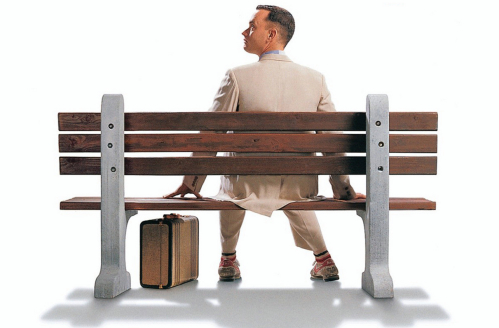A white liberal who knew his place...
|
The watershed experience in Wood's journey toward a better understanding of the black African experience occurred in 1973. It was then that he met the black activist, Stephen Biko. The two became close friends. Biko was the leader of the Black Consciousness Movement and fought against white supporters of apartheid; he was also highly suspicious of white liberals. Biko felt that if black South Africans were going to win their complete freedom and independence they would have to do it without white assistance. Biko feared that white liberals would neuter black African development. Biko realized that blacks had the dual problem of both overt and covert racism. One can easily see overt forms of racism: killings, torture, police brutality, and discrimination. However, covert racism is more difficult to deal with. This covert form is personified by the desire of some whites to do something for the black South Africans. In an earlier time, this idea was called "the white man's burden." White man's burden or noblesse oblige (it sounds better in French) is the idea that whites have a moral obligation to bring civilization, culture, and Christianity to ignorant and uneducated savages dwelling on the "Dark Continent". To be fair, many would not use this terminology, especially in more recent times. However, the underlying concept is that of white superiority over blacks. To Woods' credit, he was able to speak out against racism and apartheid and still not attempt to dominate or control the self-expression of blacks. Black South Africans had to navigate between the racists who wanted to keep them down and those few whites who wanted to help. In one sense, white liberals were more dangerous to the movement of liberation, because they wanted to do for blacks what blacks had to do for themselves, and Biko knew this. And yet to both their credits, Biko and Woods worked out a relationship of equals. When Stephen Biko was killed by being beaten to death by the police in September of 1977, it was the photographs that Woods had taken that showed the world the human rights violations of the white minority government in South Africa. Those pictures of the brutally beaten body of Biko showed the rest of the world the depravity of apartheid and sparked the maelstrom of revulsion against that government and its policies. Woods' photos also forced an inquest into Biko's death. However, in retaliation, the government placed Woods under house arrest and was not allowed to speak to more than one person at a time. Interestingly, this was the same injunction placed upon Biko before he was killed. Woods escaped from South Africa posing as a priest and lived in England for 13 years. Finally, in August of 1990, he returned to South Africa for the first time since 1977. His last trip to South Africa was to attend the wedding of Steve Biko's son, Nkosinathi. Woods died of cancer on August 19, 2001 at the age of 67. Nkosinathi Biko said of Woods, "Donald's life should be a lesson in particular to the white people of South Africa...that we can all become agents for change..." He added that black Africans had a name for Donald Woods, "They called him Zweliyanyikima -- the one that shakes the earth." And Woods did shake the earth, especially the very ground upon which apartheid had been built. It is interesting to note that today in South Africa blacks have not resorted to treating whites in the manner that they were treated for so many years. This truth surely calls into question who were the savages and who were the civilized ones. This should be a humbling realization for whites. Photo of Donald Woods courtesy of the Freedom Forum
Forrest Gump, "Stupid is as stupid does." Visit the Stupid is As Stupid Does page to read more about this topic.
|







 Donald
Woods was born at
Elliotdale, Transkei, South
Africa, in 1933 not far from Nelson Mandela's birthplace. Woods
started out life like most white South Africans-amid wealth,
privilege, and totally ignorant of their all-pervasive
racism. Initially, he viewed blacks as inferior and "easily
accepted the general white attitude that colour and race were the
determinants of the chasms in culture." His father was a trader,
and Donald grew up around black Africans and could speak Xhosa
fluently.
Donald
Woods was born at
Elliotdale, Transkei, South
Africa, in 1933 not far from Nelson Mandela's birthplace. Woods
started out life like most white South Africans-amid wealth,
privilege, and totally ignorant of their all-pervasive
racism. Initially, he viewed blacks as inferior and "easily
accepted the general white attitude that colour and race were the
determinants of the chasms in culture." His father was a trader,
and Donald grew up around black Africans and could speak Xhosa
fluently. 